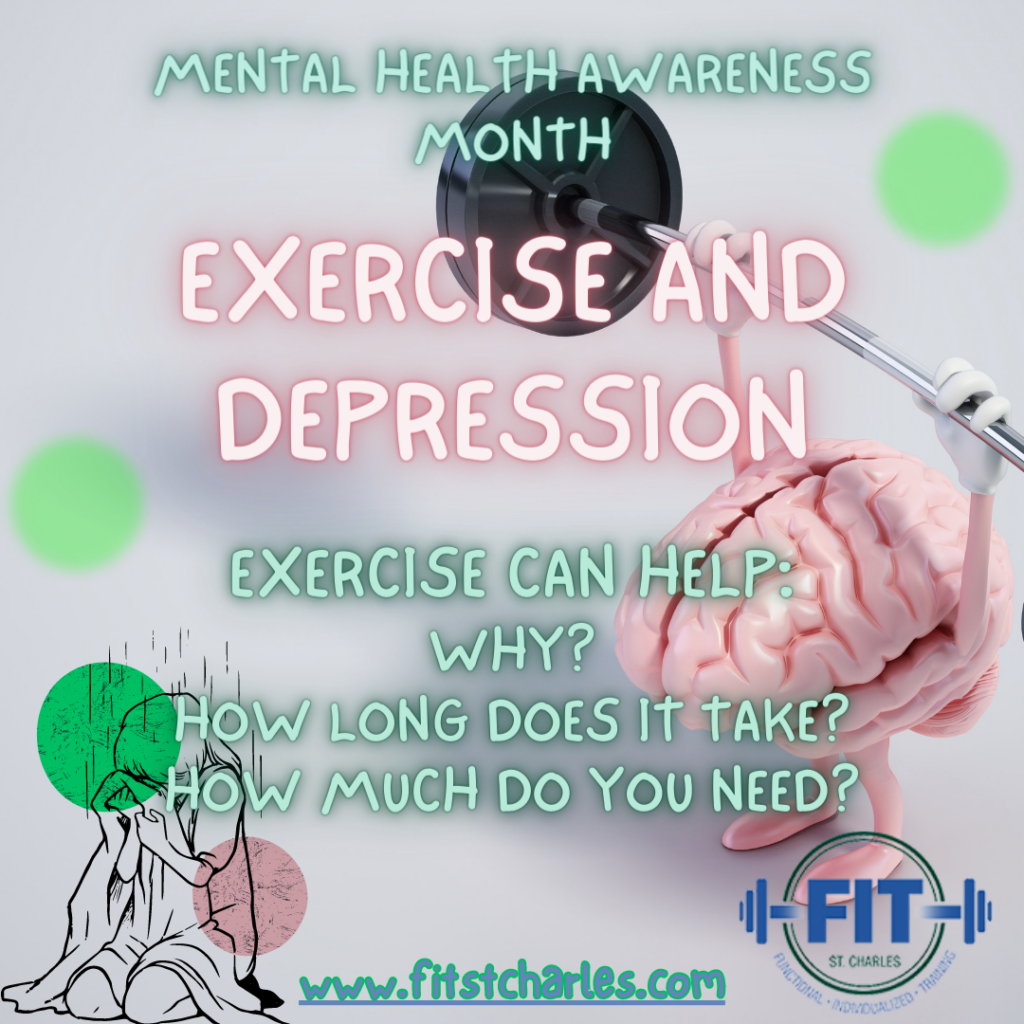
May is Mental Health Awareness Month, so let’s take a moment to discuss something that over 280 million people suffer from- depression. While exercise is not a replacement for therapy, medication, or other treatment options provided to you by a mental health professional, it has been proven to help alleviate symptoms of depression! But how long does it take and how much do you really need? And why does it help? Let’s talk about it.
The reasons exercise helps with depression are partially the same as why it helps relieve stress and anxiety. It releases feel-good hormones like endorphins and serotonin that can improve your mood. It can also alleviate loneliness and detachment from the world if you exercise outside or in a gym. It also helps because it increases self-confidence and cognitive functions. All of these are factors when talking about clinical depression.
But how long does it take? Well, you start to feel benefits immediately after your workout. However, it takes longer to feel the real lasting effects of exercise relating to depression. Much like medication, it takes a while to “build up” in your system to reach therapeutic amounts. In clinical studies, groups that exercise on a regular basis saw improvements starting at about 4-6 weeks, with optimal improvement around the 10 week mark. In fact, recent studies indicate that at around the 10 week mark, exercise was just as or almost as effective as SSRI medication in alleviating depression in some participants!
So how much do you really need? Well, it depends. Of course some is better than none, but those that found the most relief from depression worked out is 3 to 5 times per week, for 30 to 60 minutes at a time, and at a fairly high level of intensity, from 50 to 85% of maximal heart rate (220 minus your age in years). High intensity exercise (like HIIT or any type of cardio) saw the most benefits- 28% of participants in one study saw their depression go into remission in three months! Which is quite amazing when you consider how difficult depression can be to treat (30-40% of people using SSRI medication go into remission in about the same amount of time). However, it is important to note that almost EVERYONE in the study saw improvements!
Depression is a complicated and difficult disorder. Many people try many different forms of treatment before they find relief, bouncing from one medication to the next until something works, often with side effects. You should ALWAYS speak with a mental health professional if you are struggling with depression, and therapy is good for everyone, regardless of whether they are diagnosed with a disorder or not, but the benefits of exercise are clear. It is good for your mind AND your body, so whether regular exercise just reduces symptoms of depression or it eliminates it entirely, it’s never a bad idea to add a consistent exercise routine to your lifestyle!
